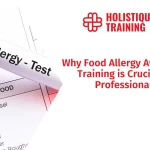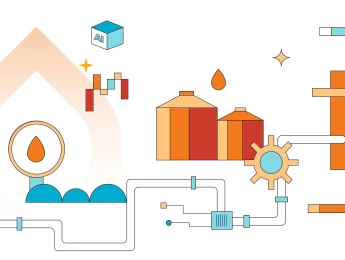This advanced course comprehensively explores food hypersensitivity, covering the latest research, diagnostic techniques, and management strategies. Participants will deeply understand food allergies and intolerances, develop advanced diagnostic skills, and learn innovative approaches to manage and treat food hypersensitivity. The course blends theoretical knowledge with practical applications, equipping healthcare professionals with the expertise to improve patient outcomes.
Upon completion of this course, participants will be able to:
- Understand the pathophysiology and epidemiology of food hypersensitivity.
- Develop advanced skills in diagnosing food allergies and intolerances.
- Learn about the latest treatment and management strategies.
- Apply evidence-based practices to enhance patient care.
- Improve patient education and self-management of food hypersensitivity.
This course is intended for:
- Allergists and immunologists
- General practitioners
- Paediatricians
- Nurses and allied health professionals
- Clinical researchers in allergy and immunology
- Graduate students in medicine and related fields
The course employs a blend of instructional methods, including:
- Interactive lectures
- Hands-on diagnostic and treatment sessions
- Group discussions and case studies
- Expert-led Q&A sessions
- Comprehensive course materials and resources
Day 5 of each course is reserved for a Q&A session, which may occur off-site. For 10-day courses, this also applies to day 10
Section 1: Introduction to Food Hypersensitivity
- Overview of food hypersensitivity: allergies and intolerances
- Pathophysiology and immunological mechanisms
- Epidemiology and risk factors
Section 2: Diagnostic Techniques
- Clinical history and symptom assessment
- Skin prick testing and serum-specific IgE testing
- Oral food challenges and elimination diets
Section 3: Management Strategies
- Pharmacological treatments: antihistamines, epinephrine, and biologics
- Dietary management and allergen avoidance
- Role of nutrition and supplements in managing food hypersensitivity
Section 4: Special Populations and Considerations
- Managing food hypersensitivity in children and adolescents
- Addressing co-existing conditions: asthma, eczema, and anaphylaxis
- Psychological impact and quality of life issues
Section 5: Practical Applications and Case Studies
- Hands-on diagnostic practice with real-world scenarios
- Developing personalised management plans
- Case studies and collaborative problem-solving
- Course review, expert Q&A, and certification ceremony
Upon successful completion of this training course, delegates will be awarded a Holistique Training Certificate of Completion. For those who attend and complete the online training course, a Holistique Training e-Certificate will be provided.
Holistique Training Certificates are accredited by the British Assessment Council (BAC) and The CPD Certification Service (CPD), and are certified under ISO 9001, ISO 21001, and ISO 29993 standards.
CPD credits for this course are granted by our Certificates and will be reflected on the Holistique Training Certificate of Completion. In accordance with the standards of The CPD Certification Service, one CPD credit is awarded per hour of course attendance. A maximum of 50 CPD credits can be claimed for any single course we currently offer.
- Course Code IND10 - 109
- Course Format Classroom, Online,
- Duration 5 days













